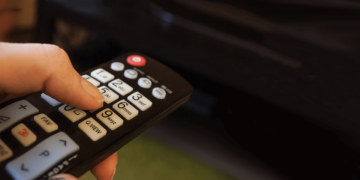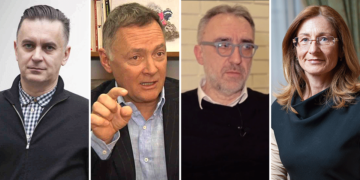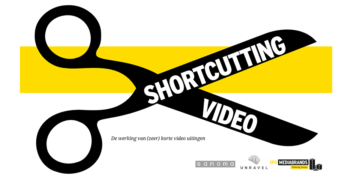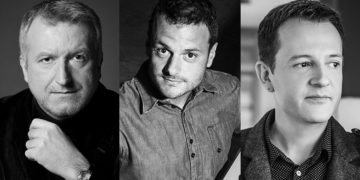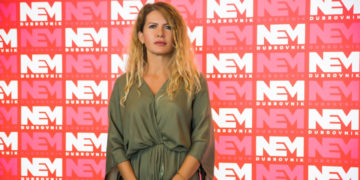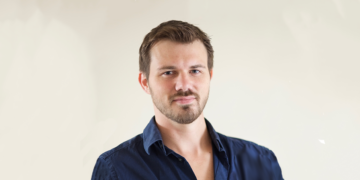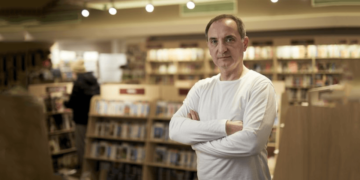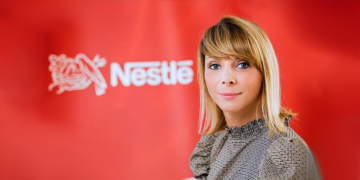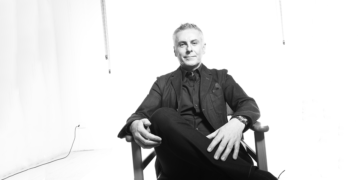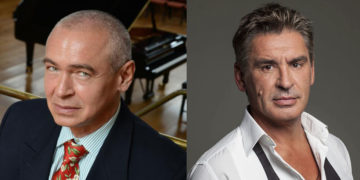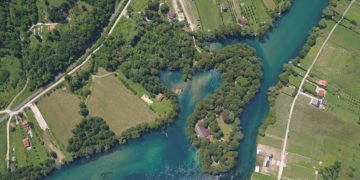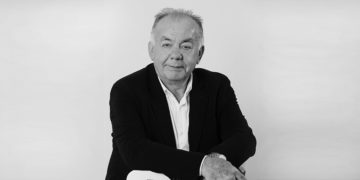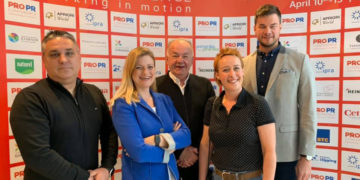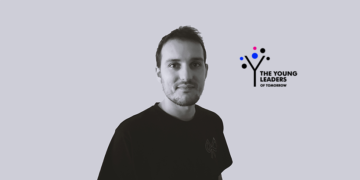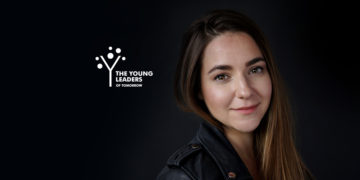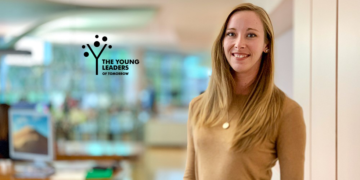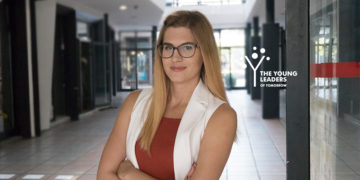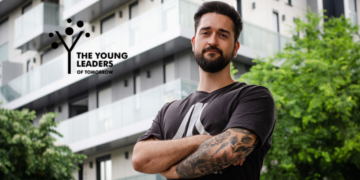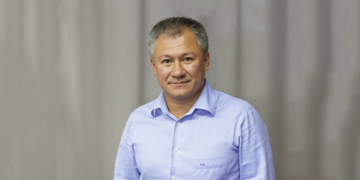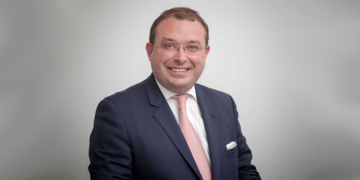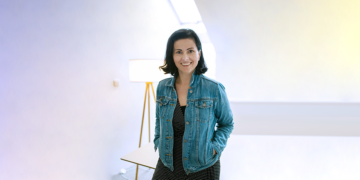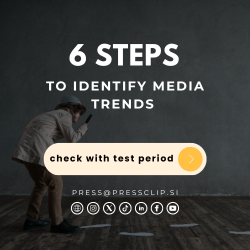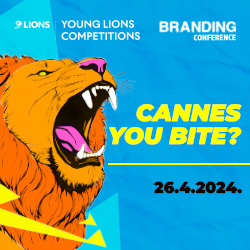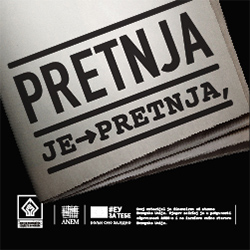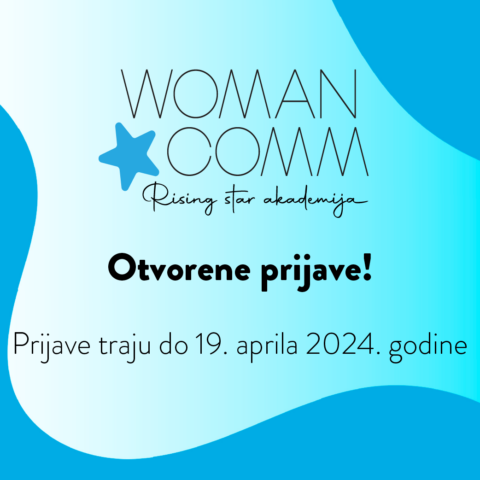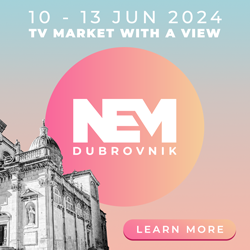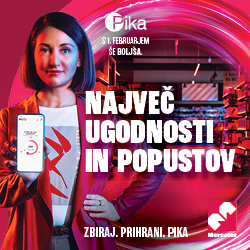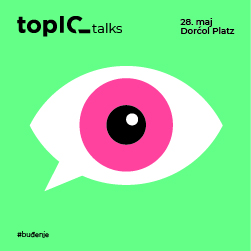Drugi jezik na kojem je dostupan ovaj članak: Bosnian
Interviewed by: Ekrem Dupanović
Translated into English: Johannah Maurer
They say that nothing will be the same after the pandemic, that everything will change, including the communications industry. But, it has been changing for years, very intensively. Most people just haven’t noticed the changes. Bruketa&Žinić&Grey is one of the agencies at the forefront of change, using collaborative tools with clients to become more agile. Simply stated, they organise workshops that last one or more days, or even over the long-term, where people from the agency work with clients to come up with solutions that address the client’s business issues. They use a range of tools in the process, like design thinking, several sprints, growth hacking, etc.
The Spiritus movens of these workshops is Nikola Žinić, the chief creative officer at Bruketa&Žinić&Grey. He is an excellent moderator, which Is very important in such processes. We interviewed Nikola to introduce the workshops, their themes, the idea behind them and their goal.
Nikola Žinić, Chief Creative Officer, Bruketa&Žinić&Grey
MM: There’s no way to avoid the coronavirus or the first question about the pandemic . How have your clients reacted? Have there been drastic budget cuts, cancelled campaigns, anything of that sort?
Nikola Žinić: Our clients have adapted to the situation. Some have restructured budgets, others have postponed events. You know, it’s totally new territory for all of us, and, after the short initial shock, we have been taking on new challenges, because the situation has really changed how people and brands behave. Our collaboration tools have proved especially useful under the circumstances and we use them a lot with clients on adapting their long and short-term communication strategies. Grey Consulting has created a really interesting new tool we are currently using to help brands understand the situation and what has to change, given likely future consumer behaviour.
MM: Have there been new unpredictable or surprising client initiatives?
Nikola Žinić: Some initiatives in response to the situation have come from us, while some are from clients. In late March we adapted Karlovačko’s popular Među svojima [At home] platform to promote physical distancing. Podravka was very quick to launch a new service, with online packs for delivery to your front door. We worked on the campaign. With Franck, we organised coffee and a chat with Ivan Šarić and Korana Gvozdić over Instagram Live during virtual rush hour. More than 11 thousand people got involved. We also organised a virtual promotional event for Ledo, with over 120 participants, for the launch of their new Highlife ice cream. Our most recent campaign was for PIK Vrbovec, where we used barbecue products to promote staying at home. The work hasn’t dried up. We’re just facing new challenges.
MM: When you accepted the Agency of the Year award at this year’s IdejaX you said the winning projects were a promise of the industry’s future, in that they solved both business and marketing challenges for your clients. Can you elaborate?
Nikola Žinić: Over the past few years, the business has undergone intense changes, even transformation, helping us realise that some creative business decisions are also effective communication tools. We don’t just provide communication solutions for our advertisers’ briefs any more. We think broadly about whether the answer to the brief lies outside communications, in a new business model maybe, or a new product, or a new service. We like to start from the business problem and see if the answer lies in classic communication or in an unexpected direction.
MM: As far as I know B&Ž&G don’t leave anything to chance, so I guess not this idea of working with the client from the very beginning of the process either. Where did this need to change how you were working come from?
Nikola Žinić: When a client has defined their business challenge, we analyse it to try and find a different perspective that may redefine the challenge. This is why we think it so important to work with our clients on exploring these challenges, sounding each other out, take the problem apart and put it back together in a different way. It offers new perspectives that get us closer to the client’s real problem, which is what we really have to focus on.
MM: How does this differ from traditional agency approaches?
Nikola Žinić: Time. This collaborative approach is a lot faster because there’s no ping-pong between agency and client, with the client sending a brief, the agency working on it and sending a solution, the client replies, and so on, for ages. Having people with different skills interact helps us define the problem and find a solution faster than the traditional way. The client and the agency are both more involved in the whole process. Together they “own” the ideas. They are stronger when they work as partners and the results are a lot better than when everyone’s working separately. As an agency we want to get to know our clients and their business, and we want the client to get to know our agency and how creatives think and work. I think that kind of knowledge and energy combination results in innovation.
MM: At the IdejaX awards ceremony, your colleague Siniša Waldinger said that while it does take less time, the advertisers and the agencies both have to put in more effort. What do advertisers get from this type of cooperation? Why get involved?
Nikola Žinić: Big international companies have already accepted this as a standard way of working. We worked with one on a new service for the Swiss market and then on another one of their projects using this type of process, collaborating on a marketing strategy for 24 European markets. Choosing to work in this way with creative agencies helps companies find new business models, new business niches, additional sources of income. Their “team” of experts in the field is joined by creatives with a fresh perspective and the combination can result in solutions with added value. Yes, it takes them out of their comfort zones. That’s why only companies that are willing to step outside their comfort zones can “afford” this process. It was Emil Tedeschi, I think, who said the models and strategies that worked before won’t work in the future. Which is why it is so important to look for innovative strategies, something we haven’t used before, step into the unknown, overcome our fear of the new, a fear we all have. Companies that want that and have the courage to go for it will come out on top. We can see that in the projects that won awards at IdejaX, like Untouched by Light or A1 Lappsus.
MM: What preconditions or expectations, beyond just stepping out of your comfort zone, help make this type of collaboration successful?
Nikola Žinić: Openness is the biggest one, willingness to accept new ideas and change. At the beginning of every one of these processes I like to say I don’t know where it will lead us. We start off with certain tools, but, will we get to that point of crystallization, create new tools, or go in a different direction? I don’t know. It is important not to be weighed down by pressure for results. If we stop focussing on results, we can free ourselves to think of better ideas, because pressure ties you down and stops you thinking outside the box. In my experience, you get the best results when you start off relaxed and open to all outcomes.
MM: How do clients react?
Nikola Žinić: They are always a little timid at first. There is generally some self-censorship, because people think that if they work in, say, sales, or are engineers, then they aren’t creative and can’t make suggestions. We were all creative as children. There’s creativity inside all of us. It’s just that some people’s creativity was supressed as they were growing up or at school. It is the moderator’s job to bring out the best in everyone and motivate them as individuals and a group. The mentor frees the participants of their fear.
MM: How do they react to your “interfering” in processes where they thought of themselves as the undisputed masters? How seriously do they really take you as equal partners in that crucial phase of product development?
Nikola Žinić: Where we “interfere” isn’t important. If the solution we are offering solves their business problem then the client is going to welcome it with open arms. We don’t find they feel we’re “interfering” rather than helping solve the problem.
MM: What is the mentor’s role?
Nikola Žinić: There are all sorts of tools readily available today, but it’s the mentor who really makes a difference. A mentor knows how to motivate people and ask the right questions, recognise key moments in the process, guide the group, bring together people with different skills, experiences, and knowledge. Mentoring skills can be learned and gained though experience, but a big part of it is natural talent. The mentor is the key person in controlling the process.
MM: Other than you, who else speaks at workshops? Just people from the agency or do you organise guest speakers for some topics to ensure everything is covered?
Nikola Žinić: We started using the Design thinking method a few years ago with Apsolon, when it was known as Sense Consulting. Now our workshops are run exclusively by people from the agency. We give them as much training as possible. Aside from me, there’s Davor Bruketa, our strategic planner Josip Buzov, and our director of digital strategy and creativity Iva Bolta.
MM: What do these workshops look like? What topics do you discuss?
Nikola Žinić: We use a whole list of tools in the workshops, like design thinking, design sprint, growth hacking, and, for example, Hyper Island share their tools very openly. They force you to ask the right question, structure your answers, and look for meaning in them. So, some of the tools we use are created by others, but we also like making our own tools, because we believe no two processes are the same, and we want to create tools specific to our process. The tools set up the structure of the process, which is important for knowing the next step. Only then can you start to wander or go to crazy places, because you have the path to return to. Like a tree with strong roots, swaying in the wind.
MM: What are the most common challenges you’ve faced with the process so far?
Nikola Žinić: As well as being the key difference between the traditional approach and our one, time is also one of our biggest challenges. It’s good to limit the time available to complete a task as it encourages intuition. The more time you have, the more analytical and calculating you become. Another challenge is to put people from different backgrounds and different habits together. Every group has someone who glares at you or hogs the communication and makes everyone else withdraw. The challenge is to balance them.
MM: Could you give us examples of some interesting situations?
Nikola Žinić: The survey generally gets the best reactions, as that is when these people, who usually spend their time behind a desk, go out into the street and talk to the target group. They come back to the workshop asking: Why don’t I do that every day? We’re all guilty of holing up in our offices and finding out about the target group from a study, but there are real people behind those numbers who you can’t really get to know unless you talk to them directly. Our prejudices are also interesting. We worked with a big traditional company and their engineers joined us. At first, I was scared I wouldn’t be able to get anything from them, but they surprised me with how great and full of ideas they were. We started with a particular business problem and as we analysed it we found the people in the company had a lot of ideas but no mechanism for innovation. We shifted our perspective on the challenge and started working together on how to encourage innovation so that employees aren’t afraid to share their thoughts. Within two days there was a quantum leap and they were very happy with the results.
MM: What do you like most about this way of working, personally?
Nikola Žinić: I love solving problems and looking for unexpected solutions in unexpected places. That is my main motivation, not to settle for good enough, but to look for even better. I love breaking things down to their basic components and then piecing them back together again.
MM: The communications industry will most definitely change significantly after the pandemic. What will (or should) change? Who should change how they think and work more, agencies or clients?
Nikola Žinić: We all have to change how we think and work, and it doesn’t matter whether the initiative comes from the agencies or clients. It’s important to follow the changes that are taking place, keep informed, do your research, try to change, and track how it reflects on your results. This is going to change all of us and we are all investing a lot of energy into changing how we work and adapt to the new situation and to a future we can’t predict. We need to be agile, not slaves to old habits. Open to new directions and new ideas, because the strategies of the past just won’t work in the future.

